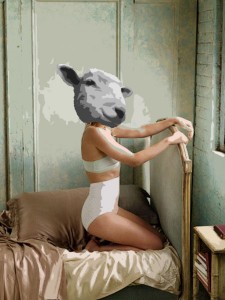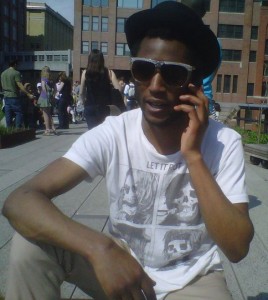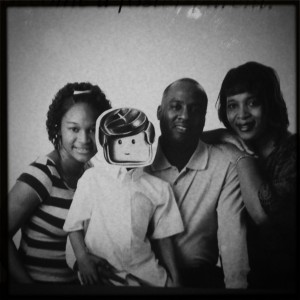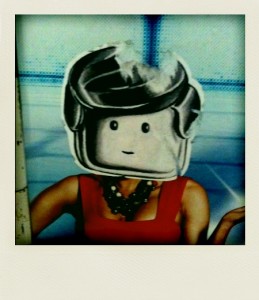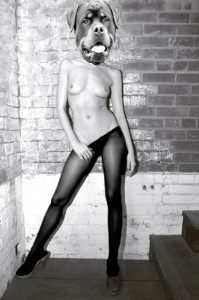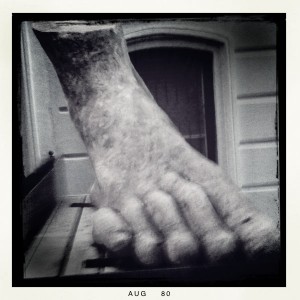by Frank Morelli
Frank: Please tell me about your educational background. Where did you go to school?
Justin: I attended Hartwick College, I learned most of what I know now on my own. I learned a lot of useful things in school but I really began to soak up knowledge when I started working in galleries after college and also reading about artists and famous pieces helped as well, in terms of my knowledge of art and art history.
Frank: What did you study?
Justin: I was studio art major with concentration in photography, i also studied glass blowing and print making as well.
Frank: What was your experience as a student like?
Justin: Well, I was really lucky because most of my roommates were art majors, so I got to work in a collaborative way when at the studio. We always observed and critiqued each other’s works, so it was overall a great learning environment.
Frank: What did you get out of school that continues to help you today?
Justin: Ill be honest, not much. Most of what I learned about art, I learned by myself. In my job now I get to see amazing art everyday. I learn by studying the pieces I’ve handled. My time spent working in the studio helped me a lot as well.
Frank: If you could be a student again, what would you do differently?
Justin: I would do everything. Now I work in every medium. Over all if I could go back I would take every class Hartwick offered on art. I would also look at more artists. I find studying the past work of artists really helps me with developing my own techniques.
Frank: What do you do in your job?
Justin: Basically as an art handler I work in central receiving. Any piece that comes into Sotheby’s I handle, this includes many different types of artwork. As I said I handle Art work in every medium.
Frank: What is an average day like for you?
Justin: I go in at 9am to central receiving and I unpack everything that comes in. Then I send the materials to the registrar where it is reported and distributed to their respected places.
Frank: What do you enjoy most about your job?
Justin: Its like being in art school without classes. You see everything that you learned about in school or through your own findings. Everyone I work with is an artist and we get to bounce ideas off each other and its just a great work environment.
Frank: What do you find most challenging?
Justin: As a handler I find it most challenging to restrain myself from doing my own art works. I find it challenging to not be able to do what id like to do in terms of selling and buying art. Not everyone comes from a gallery back ground like me, so it can be frustrating working with people who think they know art history but they are mistaken.
Frank: What skills are most essential in your job?
Justin: Handling art is the most essential skill in my job. Seems like common sense, but you need the experience of handling different types of art works to do the job correctly. Some pieces require a certain type of handling whether it is in the way it is stored or the way it is transported. Art history knowledge is essential as well because you need to know specific artists and what works they did to describe the piece and also to deliver it to its required department.
Frank: How did you acquire these skills?
Justin: From schooling and my experience working in different galleries out of college. Being in college as an art major you handle your own art as well as your class mates which builds up experience.
Frank: How did you get to where you are today?
Justin: Honestly, in college the people I were friends with worked with art which turned me onto it as well. I just kept working with art until it became my life. Now I work on art myself when i come home from work. I work on my own art everyday whether it is sculpting, painting, photography, or printmaking. The art world is a web and you just have to keep going and you’ll find your way around one way or another.
Frank: What experiences did you have, what actions did you take, what connections did you make, that enabled you to reach the position that you have today?
Justin: Just a series of networking. Helping out in different galleries, gaining the experience in handling. Kind of just networking and meeting as many people as possible in the art world. Finding the right places to work to build your resume is key.
Frank: What advice would you give to the young artist who is interested in pursuing the career you’re in? How could they get started? Can you suggest any particular internships or opportunities that I might want to look into?
Justin:
- Never stop working. Never ever ever stop working.
- Never stop reading ever.
- Never stop looking at art
And most importantly never stop trying to meet people in the art world. Never stop learning and things will work out in one way or another. It’s a game of patience. It’s a really long learning process.
Frank: Would it be okay for my professor or other students to follow up with you later on if they have any questions? If so, what is the best way for them to get in touch with you?
Justin: yes of coarse. My email is Rustin.Jobinson@gmail.com,
My website is Idiotsavantgarde.tumblr.com
Frank: What do you do when you’re not working? Is most of your time spent at work, or do you have time for recreational things too?
Justin: When I’m not working, I’m at home creating my own art. Rarely I get to hangout with friends. I’m either working on my own pieces, reading or thinking about the art I handled that particular day. I have set a goal for my self that I have to finish 100 pieces before the end of spring. Right now I’m at 30.
